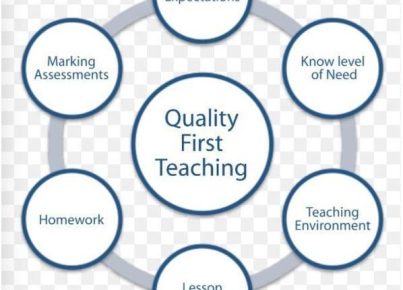As a young and enthusiastic educator, I embarked on my teaching career with a set of preconceived notions about the roles and responsibilities of parents in their children’s education. It didn’t take long for me to realize that my understanding was sorely misguided. Here’s the story of how I came to understand that my students’ parents cared deeply but faced their own set of challenges and barriers.
### The Beginning
I entered the teaching profession fresh from college, eager to make a tangible impact on the lives of my students. I was quickly disenchanted with what I perceived as a lack of parental involvement in their children’s lives. I assumed that these parents just didn’t care, brushing off their child’s struggles or successes as inconsequential.
### The Reality Check
Over time, my belief was challenged by interactions with some of these very parents. In one instance, I had the opportunity to speak with a mother who worked overtime and multiple jobs, desperate to make ends meet and give her children a better life. Another parent shared the struggle of being stretched thin trying to tend to a large family while managing a chronic illness.
The more I spoke with these beleaguered parents, the more it dawned on me that they did care – deeply, powerfully, and fiercely – about their children’s education, future, and well-being. They simply had limited resources and were living in demanding realities that took precedence over attending meetings or constantly being involved in school events.
### Practicing Empathy
In an effort to meet these parents halfway, I began implementing more flexible measures such as multiple parent-teacher conference times and offering phone consultations instead of face-to-face meetings. By empathizing with their daily battles, I understood that my previous assumptions were unfair.
Through this experience, it became clear that our society has created structures that alienate underprivileged parents, casting them in an unfavorable light. I learned to challenge the privilege-based assumptions I brought with me into the field of education.
### Sharing Knowledge and Encouragement
Following this realization, I started to share my newfound perspective with my colleagues, urging them to question their own assumptions about parental involvement. Instead of a deficit mindset focused on parents who seem indifferent or negligent, we should approach families with an open mind and empathy for the unique challenges they face on a daily basis.
### Final Thoughts
Ironically, it took witnessing these struggles firsthand for me to realize that my initial beliefs were inescapably narrow and one-dimensional. I now approach parent-teacher relationships with genuine respect for my students’ parents and a clear understanding of the financial or emotional constraints they may be dealing with. This new outlook has strengthened my connection with both students and their families – making me a better educator in the process.
Understanding that many parents do care and recognizing their invisible struggles allows us to bridge gaps in communication, collaboration, and support. As educators, it is our responsibility to meet them halfway and honor their resilience while applying our energies in channels that empower our students’ academic achievements.
And remember – we should never judge someone’s story from the outside looking in.





